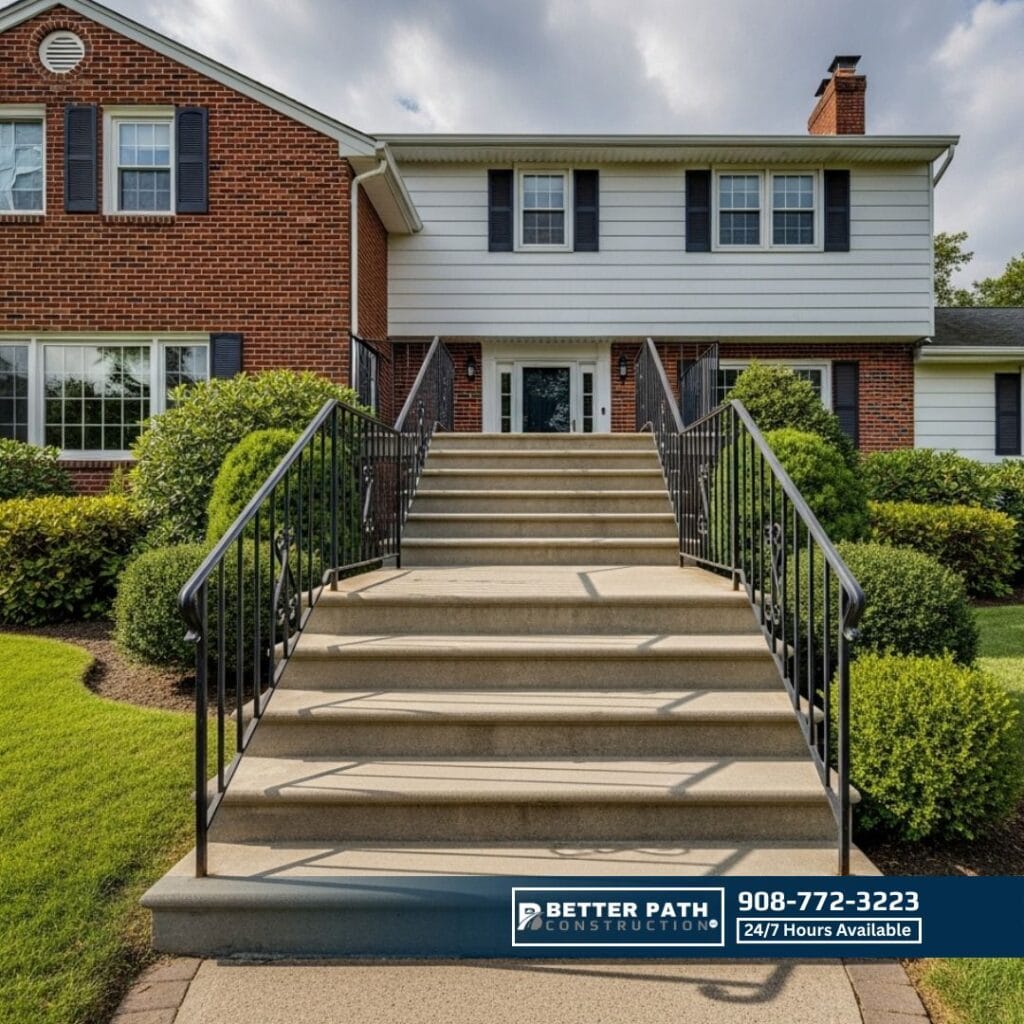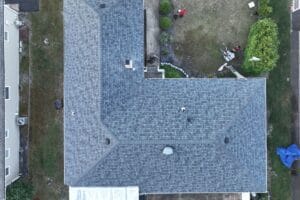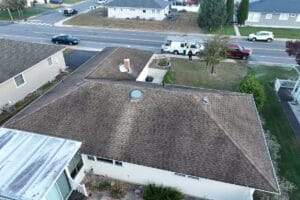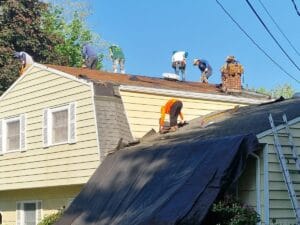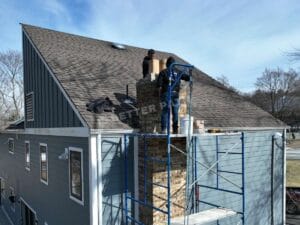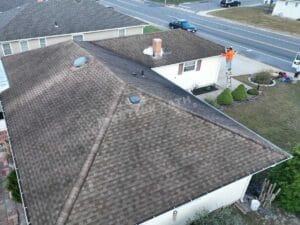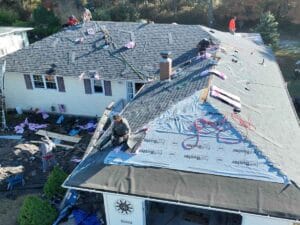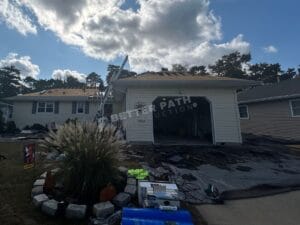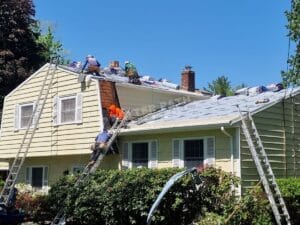If you’re wondering, “What is the ratio of concrete to steps?” you’re likely curious about the proper concrete mix ratio for building durable steps. Simply put, a standard mix ratio for concrete steps is 1:2:4-one part cement, two parts sand, and four parts aggregate (like gravel). This creates a robust, weather-resistant material perfect for outdoor stairs. For optimal strength, aim for a compressive strength of at least 4,000 PSI to withstand heavy foot traffic and harsh elements. At Better Path Construction LLC in Little Falls, NJ, we’ve applied this ratio across numerous projects in New Jersey neighborhoods, ensuring long-lasting, safe steps. Let’s dive deeper into this topic to clarify everything you need to know.
Understanding the Concrete Mix Ratio for Steps
When people ask, “What is the ratio of concrete to steps?” they often mean the proportions of ingredients in the concrete mix tailored for step construction. To clarify, concrete isn’t a single material-it’s a blend of cement, sand, aggregate, and water. The ratio directly impacts the strength, durability, and workability of the final product.
For instance, a reliable mix ratio for concrete steps is 1:2:4 (cement:sand: aggregate), which typically yields 3,000-4,000 PSI after curing. This mix is ideal for residential steps, balancing strength for daily use with ease of pouring. However, in New Jersey’s harsh freeze-thaw cycles, we at Better Path Construction LLC in Little Falls, NJ, often adjust to a 1:2:3 ratio for denser, higher-strength concrete around 4,000 PSI.
Why does this matter? Because an improper ratio can lead to issues like cracking or crumbling. For example, too much water weakens the mix (aim for a water-to-cement ratio of 0.4-0.6), while too little makes it hard to pour. Based on our experience serving neighborhoods from Paterson to Clifton, pre-mixed bags like Quikrete work well for DIYers, but professionals like us prefer custom batches for precision.
Variations in Mix Ratios Based on Project Needs
Importantly, not all steps require the same mix. For indoor steps or lighter loads, a 1:3:6 ratio (M7.5 grade) might suffice, offering basic strength for non-structural elements. However, outdoor steps in New Jersey demand more durability. Therefore, we recommend a 1:2:4 ratio for M15 grade, which enhances compressive strength to handle snow, ice, and rain.
Moreover, if your steps include reinforcement like rebar, opt for a richer mix like 1:1.5:3 to ensure better adhesion. In our projects across Essex and Passaic counties, we’ve seen this approach prevent stress-related cracks in areas with shifting soil.
How to Calculate the Amount of Concrete Needed for Your Steps
Beyond the mix ratio, some interpret “What is the ratio of concrete to steps?” as the volume of concrete needed per step. Calculating this accurately prevents waste and ensures structural integrity.
To begin, measure the dimensions: For a single step, calculate volume as length x width x height (in feet), then convert to cubic yards by dividing by 27. For multi-step stairs, add each step’s volume. A practical formula for sloped stairs is: (riser height x tread depth / 2) x width x number of steps.
For example, consider 4 steps, each 4 feet wide, with a 7-inch riser and 11-inch tread. The volume per step is roughly (0.583 ft x 0.917 ft / 2) x 4 ft = about 1 cubic foot. Thus, the total for 4 steps is 4 cubic feet, or 0.15 cubic yards. Add 10% for waste to be safe. At Better Path Construction LLC, we use tools like online calculators to refine these estimates for New Jersey homes, factoring in local soil conditions.
Step-by-Step Guide to Volume Calculation
To make this process clear, follow these steps:
- Measure riser (height) and tread (depth) per New Jersey code-risers 4-7.5 inches, treads 10-11 inches.
- Calculate individual step volume: (riser x tread / 2) x width.
- Sum the volumes for all steps, including any landing.
- Convert to cubic yards: Divide cubic feet by 27.
This method, refined through our work in Little Falls, NJ, helps clients avoid over-ordering, keeping projects cost-effective.
Building Codes and Regulations for Concrete Steps in New Jersey
Additionally, New Jersey adheres to the International Building Code (IBC) and the Residential Code (IRC), with specific amendments applicable to concrete work. For steps, risers must be 4-7 inches high, treads 11 inches deep, and handrails are required for 4 or more risers at 34-38 inches.
Furthermore, concrete must achieve a minimum of 2,500 PSI, though 4,000 PSI is standard for exterior steps to resist weathering. At Better Path Construction LLC, we ensure compliance with NJAC 5:23, including frost line footings at 36 inches to prevent heaving in winter. Local permits are crucial, so contact your township for inspections. We’ve navigated these requirements for projects in Montclair and beyond, saving clients from costly corrections.
Common Mistakes to Avoid When Pouring Concrete Steps
Although pouring steps may seem straightforward, mistakes are common. For instance, overwatering the mix weakens the concrete, leading to cracks. Aim for a slump of 4-6 inches for proper consistency.
Another frequent error is poor formwork. Forms must be level and well-braced to prevent bulging. At Better Path Construction LLC, we emphasize proper subgrade preparation-compacting soil and adding a gravel base to avoid settling.
Additionally, skipping reinforcement is risky. For steps over 3 feet wide, include rebar to enhance strength. Lastly, avoid pouring in extreme weather below 40°F can cause freezing issues.
Tips from Local Experience in New Jersey
In Little Falls, NJ, high humidity can slow curing, so we use accelerators when needed. Moreover, we avoid rushing the finishing process, as this can cause surface cracks, a lesson learned from projects across New Jersey.
Statistics and Trends in Concrete Step Construction
Interestingly, concrete steps remain a popular choice. The U.S. precast concrete market reached $19.77 billion in 2023, growing at 6% annually. Home improvement projects involving steps contribute to the $91.2 billion concrete contractors industry.
In terms of costs, installation averages $3,500, with New Jersey prices ranging from $1,000 to $6,000 depending on size and complexity. By 2026, 47% of construction spending is expected to focus on design-build projects, prioritizing durability.
Specifically in New Jersey, freeze-thaw cycles drive demand for high-PSI mixes, with the precast stairs market projected to hit $2.5 billion by 2033.
Expert Insights on Concrete Mixes for Steps
Experts consistently emphasize balanced ratios. For example, one contractor states, “Most reputable concrete guys will want a 4000 psi mix for outdoors.” Another advises, “For foundations, a mix of 1 part cement to 3 parts sand to 6 parts aggregates can be used,” but suggests scaling up for steps. A third notes, “The ideal concrete mix for sidewalks [and steps] combines the right proportions of cement, sand, gravel, and water.”
At Better Path Construction LLC, we align with these insights, customizing mixes for New Jersey’s climate to ensure longevity.
Answering Related Reader Questions
To address common concerns: How long do concrete steps last? Typically, 30-50 years with a proper mix and maintenance. Can I DIY? Yes, but professionals ensure code compliance. What’s the best PSI? 4,000 for exterior steps.
FAQs
If you notice major cracks, uneven settling, or crumbling edges, it’s time to act. In New Jersey’s variable weather, inspect annually. Contact Better Path Construction LLC in Little Falls, NJ, for a professional assessment.
Poured steps are custom-formed on-site, ideal for unique designs, while precast steps are factory-made for faster installation. We offer both options in Little Falls, NJ, tailored to your needs.
Maintain a water-cement ratio of 0.45-0.6 for workability without compromising strength. Too much water can cause shrinkage cracks.
Conclusion
In summary, understanding “What is the ratio of concrete to steps?” whether it’s the mix proportions or the volume needed, ensures safe, durable results. From the reliable 1:2:4 mix to precise volume calculations, we’ve covered the essentials with local New Jersey insights. At Better Path Construction LLC in Little Falls, NJ, our expertise guarantees steps that endure time and weather. Ready to build or repair your steps? Call us today at (908) 772-3223 or visit our website for a free quote. Let’s pave a better path together for your New Jersey home!

